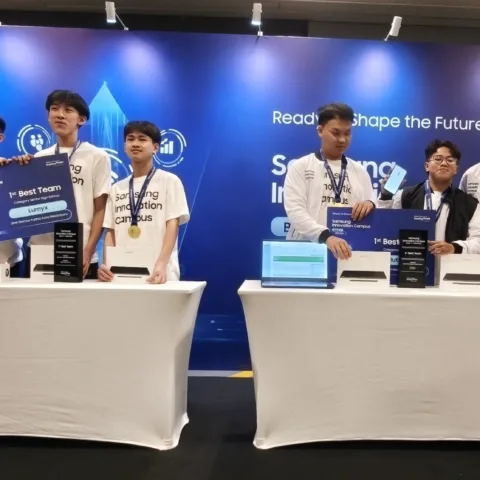 So Google, RIM, Facebook and just recently Paypal decided to open their office in Malaysia instead of Indonesia. This causes controversy amongst industrialists and economists that believe those companies should’ve set up their offices in Indonesia instead of Malaysia. Market-base is one of the biggest reason, companies like Facebook and RIM (Blackberry) have a huge user base in Indonesia but instead they’re investing in Malaysia.
So Google, RIM, Facebook and just recently Paypal decided to open their office in Malaysia instead of Indonesia. This causes controversy amongst industrialists and economists that believe those companies should’ve set up their offices in Indonesia instead of Malaysia. Market-base is one of the biggest reason, companies like Facebook and RIM (Blackberry) have a huge user base in Indonesia but instead they’re investing in Malaysia.
We keep trying to figure out why but just recently I was guided to a Wikipedia page of something called the Foreign Corrupt Practices Act. Could this be the reason?
Foreign Corrupt Practices Act (FCPA) was a regulation passed in 1977 by the US Senate, a federal law that basically does two things : addresses accounting transparency requirement under the Securities Exchange Act and also addressing concern about bribery of foreign officials in its relation to foreign investment.
This law basically forbids US companies giving bribe (as an act of corruption) specifically in order to do foreign investments. In Indonesia, this can be very tricky. I’ve heard numerous rumors about how American companies reconsider their plan to invest in Indonesia because of this bureaucracy and its high-relevancy to corruption issue.
It is a public secret that in Indonesia, it is almost impossible to register a firm or doing business documents without giving bribe to the government. I’m not proud of it, but it’s the truth and I think this is something that every Indonesian is currently fighting against. Once we got this matter handled, hopefully it’ll open more doors for American investors / companies to invest in Indonesia without fear of the bureaucracy and bribing government officials.
It’ll take a looonngg time though.











If it’s something that EVERY Indonesian is currently fighting against, then it wouldn’t happen in the first place, no? I’m not proud of it, but I think only small portion of Indonesian is against bribery.. (I still hope I’m wrong, though)
many times US companies have to survive though. they do briberies thru third parties, paid as consultants… it is happening with freeport right now, they will be in big trouble if they pay indonesian national police directly…
there are already many overseas companies with 100% investment set up in Indonesia… I wonder how they get around these bribery issues :))
FCPA is part of the issue but more like an irritating itch than a deal breaker. RIM *does* have people in Indo, albeit a very small team. I don’t think the problem is just with US-registered companies.
Possible reasonings:1) Tax liabilities: by keeping in SG there are some pretty good breaks i.e. 0%. MY has Labuan which is a tax free zone (3%). Indo doesnt have such (legal) provisions.2) Lifestyle: very hard to get key managers to work outside of SG (KL seems a good second option as sales/marketing outfit).3) Speed: its much faster to get deals thru in SG and MY (relationships do matter in these countries as well and some times you have to pay in kind). Interestingly, Indo is similar to Japan on the speed of biz conducted by foreign companies. Just the way foreign companies have to turn their management “Japanesed” similar is with Indonesia. Its not the case in MY, SG, and Thailand.
FCPA is part of the issue but more like an irritating itch than a deal breaker. RIM *does* have people in Indo, albeit a very small team. I don’t think the problem is just with US-registered companies.
Possible reasonings:1) Tax liabilities: by keeping in SG there are some pretty good breaks i.e. 0%. MY has Labuan which is a tax free zone (3%). Indo doesnt have such (legal) provisions.2) Lifestyle: very hard to get key managers to work outside of SG (KL seems a good second option as sales/marketing outfit).3) Speed: its much faster to get deals thru in SG and MY (relationships do matter in these countries as well and some times you have to pay in kind). Interestingly, Indo is similar to Japan on the speed of biz conducted by foreign companies. Just the way foreign companies have to turn their management “Japanesed” similar is with Indonesia. Its not the case in MY, SG, and Thailand.
To second Mr. Nanavati – FCPA is part of the issue but more an irritating itch than a deal breaker. As it is FCPA is geared towards larger multinational with even larger interests in geopolitical interests of Multinationals from Developed Countries in Energy/Infrastructure/Financial Services sectors.
Internet Industry in Indonesia is far from a number making it significant enough for law enforcement bodies for the MNCs (mostly public companies) to be concerned with FCPA (or the likes in European jurisdiction).
Closer to the heart of the problem is the issues with red tape and bureaucracies.
The most obvious example for startups.id is the associated costs with setting up corporations and fundraising/capital restructuring. A lot of startups in Indonesia face problems in negotiating an executable term sheet with investors due to unfriendly climate for SME and in particular Tech/Creative Industries (as per my definition: those with significant INTANGIBLE ASSETS on their Balance Sheet).
As Mr. Nanavati mentioned, Indonesia have very unfavorable regulatory climate for both Tax and Corporate structure to accommodate rapid growth of internet startups (as to be expected in the US – or more favorable climate, practically anywhere else in the world. According to the World Bank, Indonesia is near bottom in easy to do business index, please Google for details).
Lastly but not less importantly, Indonesian Media/Advertising Industry is riddled with ancient regulatory sentiments prohibitive to foreign direct investments and thus critically crippling the nascent industry of Internet (advettising based) – and driving it towards more mobile (enabling gov’t quasi monopolies via telcos – but killing creative – music/movies/software – industries).
I hope it makes sense.